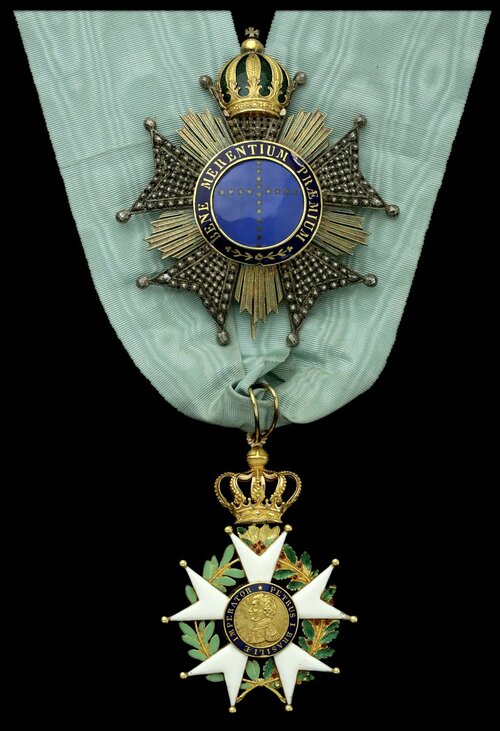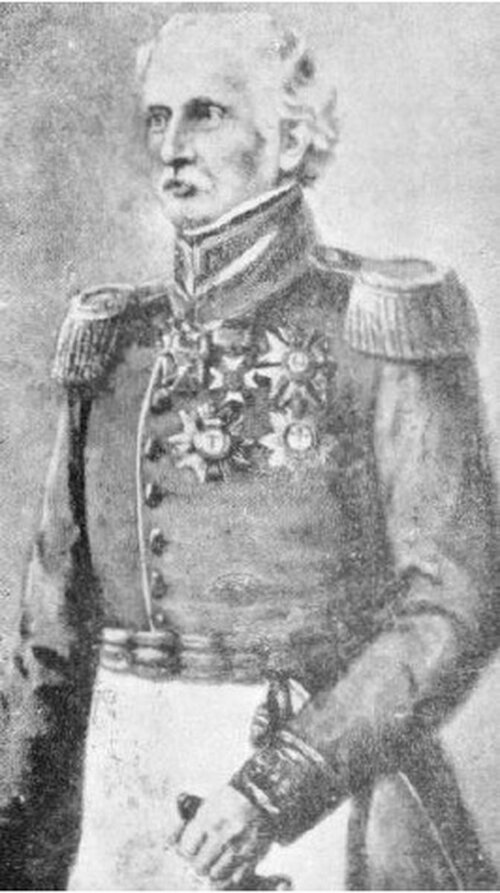Auction: 21002 - Orders, Decorations and Medals
Lot: 398
(x) The very rare Brazilian Imperial Order of the Southern Cross attributed to Count Gustav Heinrich Gottlieb von Braun
Brazil, Empire, Order of the Southern Cross, Grand Officer's set of Insignia (Type I), comprising Badge, 85mm including crown suspension x 60mm, gold, with mark for Paris 1819-38 to top of crown and enamel; Star, 98mm including crown x 85mm, silver-gilt, silver, gold crown and enamel, enamel chipping throughout commensurate with age, nearly very fine, with length of original riband (2)
Gustav Heinrich Gottlieb von Braun was born on at Arneburg on Christmas Day 1775. He joined the Royal Saxonian Cadet Corps, aged 10 in 1786 and then the British Army in 1794. Stationed in Jamaica from 1800-1809, by 1810 he was made an Officer of the Light Infantry (9th Caçadores) of the British and Portuguese Army. During the Peninsula Wars he was severely wounded at the Battle of Nive and was in receipt of an Army Gold Cross.
On 10 November 1818, he was ennobled at Aachen. His father, then aged 67, had lost three of his four legitimate children earlier that year. Gustav was an illegitimate child, but on the verge of having his family die out, his father made him a legitimate heir.
Married to Jane Charlotte Cuff-Gore, of Cowes, Isle of Wight, the Count served in the Royal Brazilian Army from 1826-31. During his service he was awarded the Order of the Southern Cross in 1828. Known in Brazil as Gustavo Henrique Brown, he fought in the battle on the Passo do Rosário in 1827 against Argentinian forces. The battle was lost, but von Braun was able to hold the remains of the Army together and see through an organized retreat. The Argentinian forces were weakened enough to not pursue them. The following peace negotiations in a relatively strong position enabled Brazil to keep the state of Rio Grande do Sul, and the Provincia Cisplatina became an independent buffer state between Brazil and Argentina - Uruguay.
Von Braun is, in essence, an unwilling co-founder of the country of Uruguay. In 1831, he lost his favoured status in Brazil, due to a difference of opinion with his superior, and was declared a foreigner. He was forced to leave the country and sue the Brazilian Government Pension, which took until 1851. Retiring to Cowes, he went to Dresden 1843 and died there - with issue of some 13 children - on 28 May 1859.
Subject to 5% tax on Hammer Price in addition to 20% VAT on Buyer’s Premium.
Sold for
£12,000
Starting price
£3200







